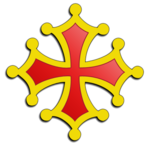No Béarla

"No Béarla". Le titre ne vous parle pas ? Normal, c'est du gaélique, et cela se traduit par "No English".

Récemment, j'ai trouvé un article très intéressant sur la place de la langue gaélique en Irlande. Il date de 2006, mais montre bien que cette langue, parfois considérée comme langue morte, fait bien de la résistance. Cela me ramène bien sûr au Occitan, qui a tendance à refaire apparition dans les régions du Sud, et notamment à Toulouse, ma ville natale. Je serais bien curieux de voir les réactions des toulousains si on leur parlait en occitan. Je ne serais moi-même pas capable d'aligner 2 mots en Occitan...
J'ai souvent eu l'occasion de poser des questions sur le gaélique avec mes amis irlandais, et bien qu'ils connaissent tous des phrases du type "je m'appelle ..., j'habite à ..., j'ai ... ans ", très peu d'entre eux sont vraiment capable de tenir une conversation en gaélique, et aucun d'entre eux ne le parle réellement couramment.
Il faut savoir que le gaélique est depuis peu réappris à l'école, et il est obligatoire pour certaines professions de le parler couramment (forces de l'ordre, professeur des écoles, ...). D'ailleurs, pour ces professions, un stage obligatoire de quelques semaines a lieu dans une famille qui ne parle que le gaélique, dans l'ouest de l'Irlande généralement.
En regardant le documentaire que je vous mets en bas d'article, j'ai toutefois été très surpris d'apprendre que le gaélique est plus parlé en Irlande du Nord, à Belfast, qu'à Dublin ! En effet, sachant la très grande influence anglaise présente en Irlande du Nord, je pensais vraiment que le gaélique avait disparu.
Mais si vous venez en Irlande, vous verrez du gaélique un peu partout, car celui est devenu obligatoire pour toutes les signalisations et inscriptions publiques. Dans l'ouest de l'Irlande, les marquages au sol sont parfois même toujours en gaélique!

"Go Mall" means "Slow Down", on trouve toujours les signalisations en gaélique sur les routes irlandaises de la côte ouest principalement.
Je vous laisse avec quelques faits amusants sur la langue irlandaise, qui montre bien la complexité de celle-ci, et en bas d'article, le premier épisode de "No Béarla".

You may hear an "Erin go bragh" and a "sláinte" or two this St. Patrick's Day, but even on the most Irish of holidays, we don't hear much of the Irish language—which is a shame! Irish is so different from English or any of the languages we usually study in school, and so much about it is rather interesting and cool. Here are a few fun facts about Irish.
Gaelige is the name of the language in Irish, and Irish is the name of the language in English. Sometimes people will call it Irish Gaelic in order to make sure they aren't misunderstood to mean "Irish English" for Irish. They may also say Irish Gaelic to distinguish it from Gaelic, which means Scottish Gaelic, a related but different language.
There are no words for "yes" or "no" in Irish, but that doesn't mean there's no way to answer a question. You communicate "yes" and "no" with a verb form. The answer to "did they sell the house?" would be "(they) sold " or "(they) didn't sell." In Irish:
Ar dhíol sian an teach?
Dhíol.
Níor dhíol.
Sentences have Verb Subject Object order. So "I saw a bird" would be "Saw I a bird." "I always speak Irish" would be "Speak I Irish always." This word order is relatively rare—only 9 percent of the world's languages use it.
In addition to one set of numbers for doing arithmetic or referring to dates and times, Irish has a second set for counting humans and a third set for counting non-humans. Five children is "cúigear páiste," but five horses is "cúig chapall."
What's the word for "woman"? Either "bean" (byan), "bhean" (vyan), or "mbean" (myan), depending whether it comes after certain possessive pronouns (my, your, his), or certain prepositions (under, before, on), or certain numbers, or a whole range of other conditions that determine which form of the word is correct. Most languages people study require them to learn different word endings, not beginnings. Irish requires…both. It's a bit of a challenge!
English has a lot more. More than 80, and that's just counting the commonly used ones…
English phrases in many parts of Ireland show a parallel structure with their counterparts in Irish. "I'm after eating my breakfast " (I just ate my breakfast), "I gave out about the terrible service" (I complained/told them off about the terrible service), and in some places, "He does be working every day."
Filmmaker and native Irish speaker Manchán Magan made a documentary No Béarla (No English) in which he traveled through Ireland only speaking Irish, even when people demanded he switch to English. Shopkeepers told him to get lost, officials refused to help him, people on the street ignored him, but he kept at it and found willing speakers here and there. In any case, he survived the trip. Watch it below.




/https%3A%2F%2Fassets.over-blog.com%2Ft%2Fcedistic%2Fcamera.png)
/http%3A%2F%2Fstorage.canalblog.com%2F75%2F75%2F419381%2F130754195_o.jpg)
/http%3A%2F%2Fstorage.canalblog.com%2F69%2F73%2F419381%2F129291680_o.jpg)
/https%3A%2F%2Fprofilepics.canalblog.com%2Fprofilepics%2F2%2F0%2F205416.jpg)
/https%3A%2F%2Fstorage.canalblog.com%2F38%2F81%2F419381%2F48147177_o.jpg)
/https%3A%2F%2Fstorage.canalblog.com%2F39%2F70%2F419381%2F40319347_o.jpg)
/https%3A%2F%2Fstorage.canalblog.com%2F13%2F07%2F419381%2F40317248_o.jpg)
/https%3A%2F%2Fstorage.canalblog.com%2F93%2F09%2F419381%2F38559943_o.jpg)
/https%3A%2F%2Fstorage.canalblog.com%2F50%2F70%2F419381%2F34852863_o.jpg)